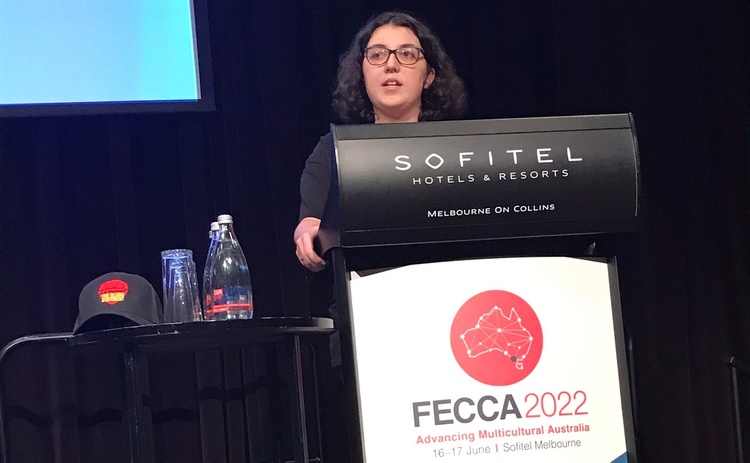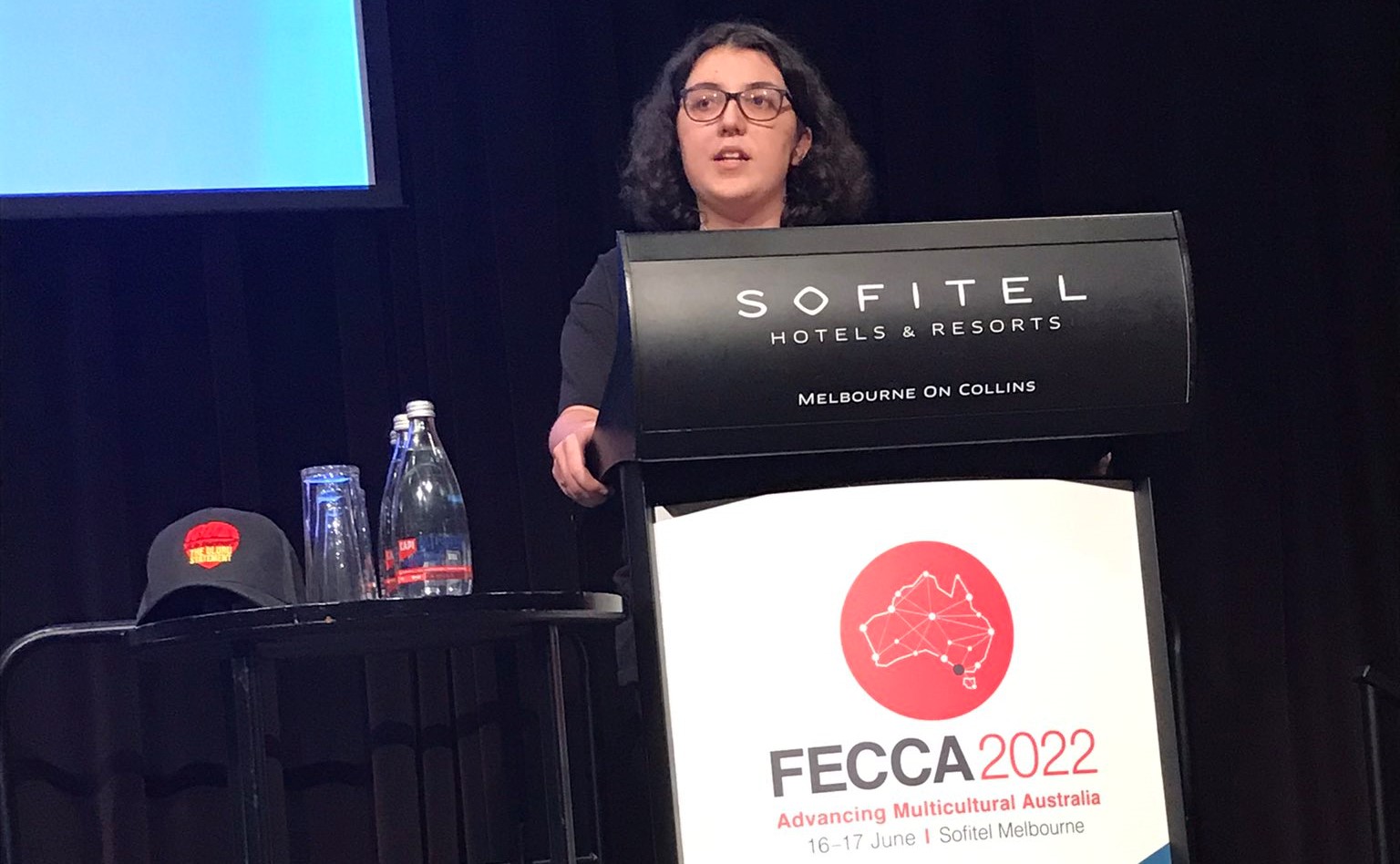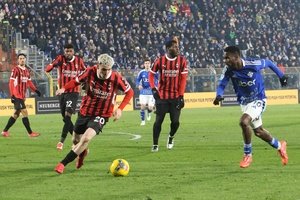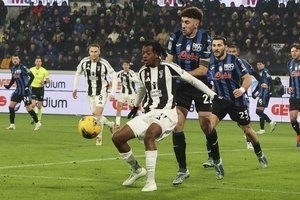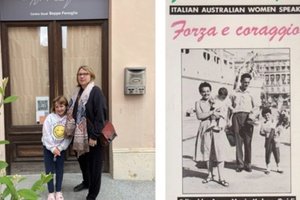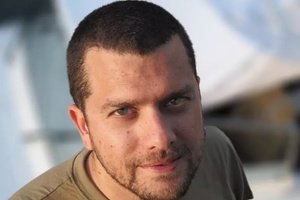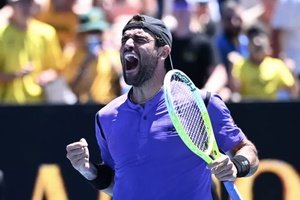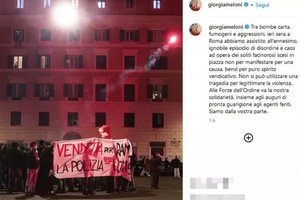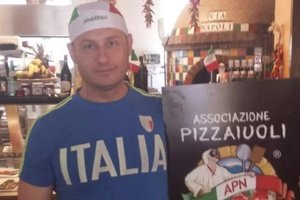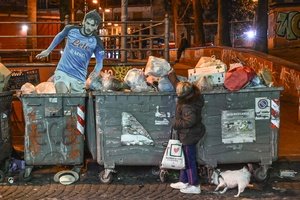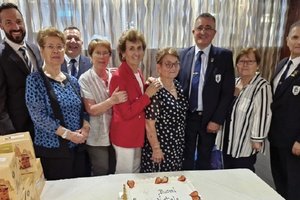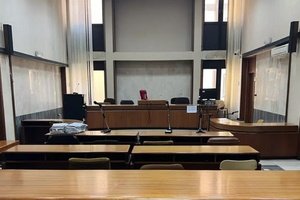Brydie is a proud young Wiradjuri woman with Italian heritage who is making her mark in the conversation on recognition and reconciliation.
For Brydie the conversation is as personal as it is political.
Brydie is one of four children born into a Wiradjuri-Irish-Maori-Italian family.
Brydie states that she is “very proud of her heritage” and by that she means the privilege of being Wiradjuri as well as having Italian heritage.
Her father’s family is from Auronzo di Cadore in the Belluno Dolomites.
Wiradjuri Country is the largest in New South Wales and takes in the towns of Dubbo, Orange, Bathurst, Wagga Wagga and Griffith. In fact, Wiradjuri means “people of the three rivers” (traditionally, the Lachlan, Murrumbidgee and Macquarie rivers).
Most of Brydie’s upbringing has been with her Wiradjuri grandmother on her father’s side. This has meant that she has learnt the ways of her Elders and has been able to remain connected with cultural Lore.
Brydie has also been influenced by her father’s Italian cultural heritage.
One of her fondest memories is learning to make homemade pasta with her father and siblings. They would gather around the table with the eggs, flour and rolling pin eager to make the pasta dough that would end up being served up as a delicious meal.
She did not meet her Italian nonno which saddens her. He passed when her father was only 20 years of age.
However, her father shared stories about him and the family. Brydie says she knows poco italiano, a few words of Italian, as a result of these stories.
As she tells her family story, it is clear that the values placed on family and respect for culture are the two common principles shared by all who make up Brydie’s circle.
Each of the members has ensured they have passed on cultural stories, traditions, and respect for each other’s cultural ways of doing and being.
Now Brydie, at 21 years of age, feels comfortable moving about the world with a strong sense of self which embodies all the various elements that make up her own unique, rich cultural heritage.
However, “everyone has something to say about you” she explains.
Brydie is used to one question in particular, “are you sure you are Aboriginal?”
She is asked this question from non-Aboriginal and First Nations people alike. They look at her jet-black hair, bright dark eyes, and her skin colour and then make judgements, concluding that, surely, she is not Aboriginal.
However, she knows her bloodline and she easily explains her connection to Country through her Wiradjuri family – just as easily as those of her families who came from across the seas.
Brydie admits that sometimes she tires of the questioning, the doubting. Everyone expects Aboriginal people to be dark and have a stereotypical look.
“Some people just don’t understand” but she finds that First Nations people are used to the idea of mixed heritage and “hold space for each other. They just accept you as you are. This makes me feel very comfortable in being who I am.”
Brydie has left her hometown of Lithgow to study a Bachelor of Law and Arts majoring in Politics and International Relations at the University of New South Wales in Sydney.
Brydie Zorz with her sibilings
The first of her family to go to university, she aspires to “contribute to nation building” through a career in policy or a related area of work.
She feels it is time for Australia to “look at where we are at as a nation, how we are set up, where we have come from, our learnings, and, importantly, where we want to go”.
Brydie is part of the Uluru Youth Dialogue. She explains that in 2019, 50 youth representing organisations across Australia (remote, regional and urban) came together at a Youth Convention.
They decided they wanted to do their part in understanding and shaping the conversations and reforms around the Uluru Statement of the Heart.
To this end, Brydie, along with Bridget Cama, the Co-Chair of the group, made a successful presentation to the Lithgow City Council on the importance of responding to the Statement.
This resulted in Council deliberations on the matter and its subsequent decision to support the Statement. The Council went further and made a formal commitment to work with First Nations Peoples.
Despite her young age, shyness and natural humility, Brydie has already made her mark.
A speech written by Brydie’s as an 18-year-old in secondary school was, in fact, mentioned in Parliament by Matt Thistlethwaite MP in 2021.
He noted the importance of the words in the Uluru Statement of the Heart:
“When we have power over our destiny our children will flourish. They will walk in two worlds and their culture will be a gift to their country.”
Given Brydie’s rich cultural heritage, these words are particularly significant.
If Brydie has taken anything from her Wiradjuri heritage and her Italian family line – it is a fierce resolve and sense of social justice.
She presented at the 2022 FECCA conference and continues to speak up, often, despite some harsh backlash and trolling.
She is a young woman determined to make a difference.
Already Brydie has various accolades to her name, receiving Lithgow’s 2022 Young Citizen Achievement Award.
This is not unlike her siblings who each aspire working towards helping the community. Her sister Ella, who received a Young Volunteer of the Year Award in 2022, is working towards a social work degree, her brother also plans to follow in her footsteps.
Brydie hopes that through the upcoming referendum people from all backgrounds engage in the national conversation around a Voice to Parliament and “consider the importance of the moment carefully – knowing that Australia has a unique opportunity to demonstrate recognition of First Nations People in the Constitution”.
The importance of the Referendum is not lost on Brydie – she hopes it will address the paradox of the situation that existed for her nonno and her grandmother. That is, whilst her father and grandfather were always counted in the census, even though they were thought of as “new Australians”, her Wiradjuri grandmother and family, Indigenous People of Australia, were counted amongst cattle.
“It took till a referendum in 1967 to decide that First Nations People could be counted in the Census.”
Brydie pauses as she gathers her thoughts, “what will happen to us if we are not recognised in the Constitution through this year’s Referendum?”
Brydie’s deepest hope is that by the end of the year First Nations People are finally recognised and that the future is more hopeful.
Brydie’s energy in 2023 is firmly directed towards her university studies and her work around the Uluru Statement of the Heart.
After that, like many young people, her wish is to complete her studies and earn enough money to travel. Italy is high on her travel list.
She is keen to visit and reconnect with her family there and personally get to experience all things Italian.
In the meantime, she has a strong circle of friends, many of whom are Italian and with whom she spends time, exchanging stories of family and culture on pizza nights, pasta-making afternoons – and whilst having a gelato on study breaks.
Most of all, they share their “aspirations for a more reconciled Australia”.

